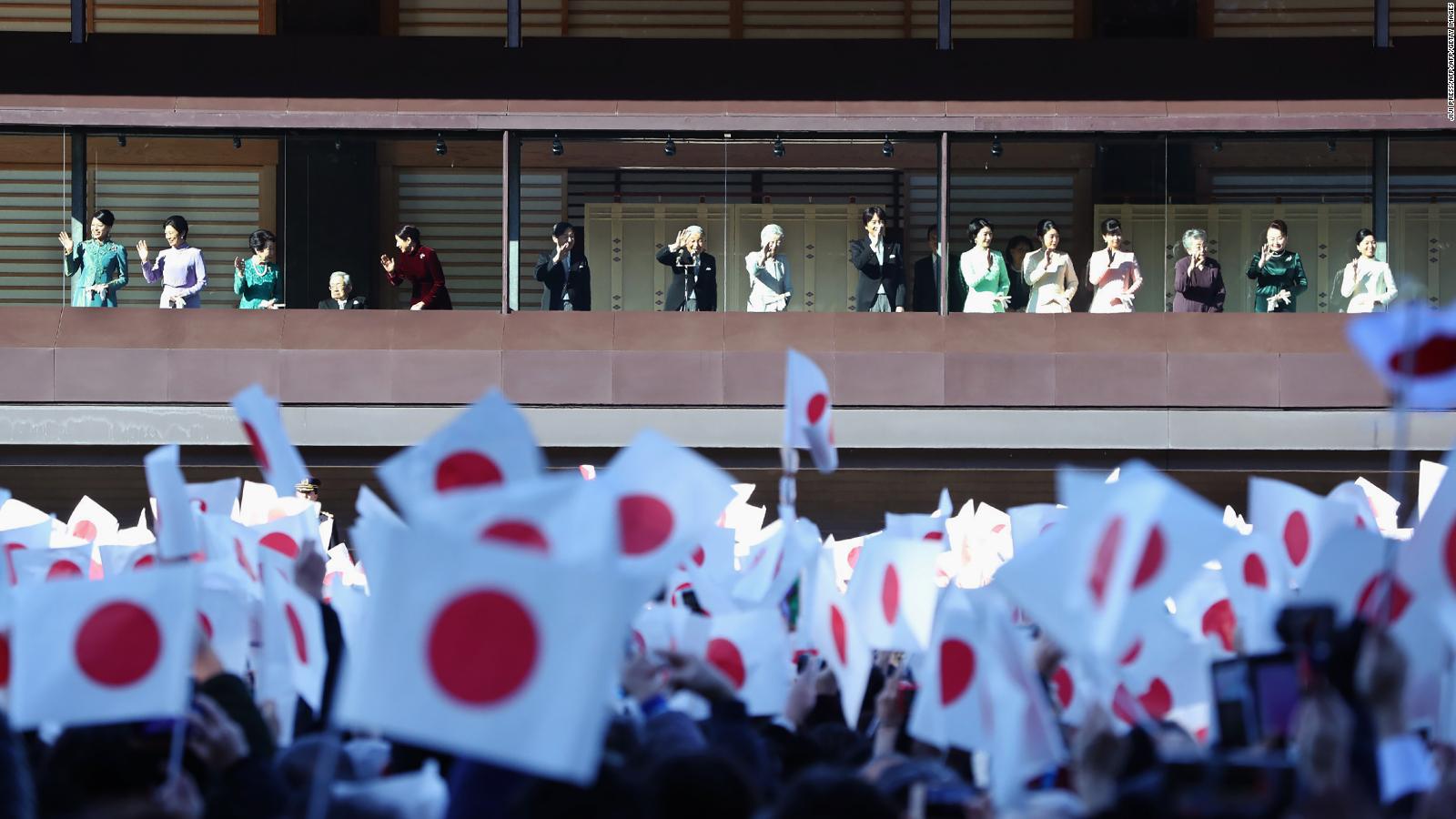The Imperial Household Agency told CNN that the number of well-wishers exceeded 140,000 for Emperor Akihito's New Year address to the public, which takes place every year on January 2, breaking the former record, set last year with 126,720 people.
"Happy New Year. I am truly delighted to celebrate the New Year with you all under (this) clear sky," he told the raucous, cheering crowds, many of whom waved Japanese flags and yelled "Banzai" -- the Japanese equivalent of "three cheers."
He was accompanied by his wife, Empress Michiko, and children, including his successor, Crown Prince Naruhito.
Following his remarks the family stood on the balcony and waved at the massed crowd. Aerial shots showed a mass of humanity leaving the central Tokyo palace following the speech.
"I hope this year will be a good year for as many people as possible. At the beginning of the year, I wish for the peace and happiness of the people of our country and the world."
The visitors came throughout the day, with Akihito repeating his remarks five times for the crowds who came to see the long-serving leader over a period of several hours.
Akihito, who has been the country's head of state since his father Hirohito's death in 1989, announced his decision to abdicate the Chrysanthemum Throne a little over a year ago -- the first Japanese monarch to do so in 200 years.
He will step down on April 30th; Naruhito, who has already assumed some of his father's duties, will be crowned on May 1. He will become Japan's 126th Emperor.
In August 2016, Akihito gave a rare televised address, where he said his age and fitness level could make it "difficult" to carry out his duties in the future, a plea many took as a request to step aside.
Following that speech, the Japanese parliament in June passed into law a historic bill to allow 83-year-old Akihito to abdicate the throne if he chose.
"When I consider that my fitness level is gradually declining, I am worried that it may become difficult for me to carry out my duties as the symbol of the State with my whole being as I have done until now," he said in 2016, only the third time a Japanese emperor has addressed his people on air since 1945.
The emperor is a ceremonial but revered figure in Japan's constitutional monarchy. It is currently the oldest hereditary monarchy in the world, dating back fourteen centuries. Akihito himself is a direct descendent of Japan's first emperor Jimmu, believed to have reigned around 660 BC.
The last emperor to abdicate was Emperor Kokaku in 1817 in the later part of the Edo Period. In general, Japan's monarch is not allowed to step down under Japan's legal framework.
Akihito's father was the wartime Emperor Hirohito who presided over Japan's aggression in the first half of the 20th Century.
Akihito has repeatedly expressed remorse for his country's actions before and during World War II, including during his visit to China in 1992, the first ever by a Japanese monarch, although he did not apologize.
On January 1st the Emperor takes part in new year rituals with the Imperial family, and receives foreign dignitaries.




No comments:
Post a Comment